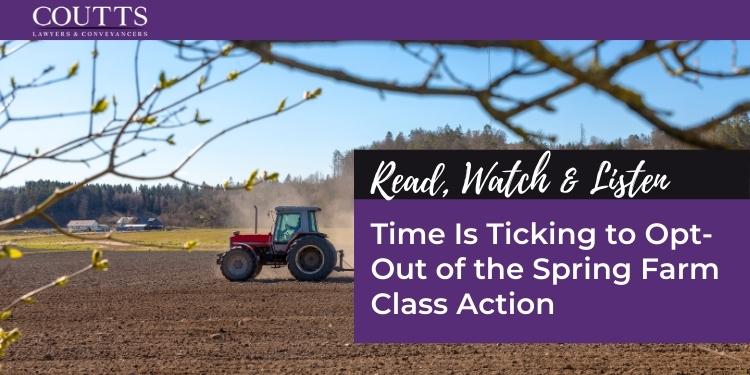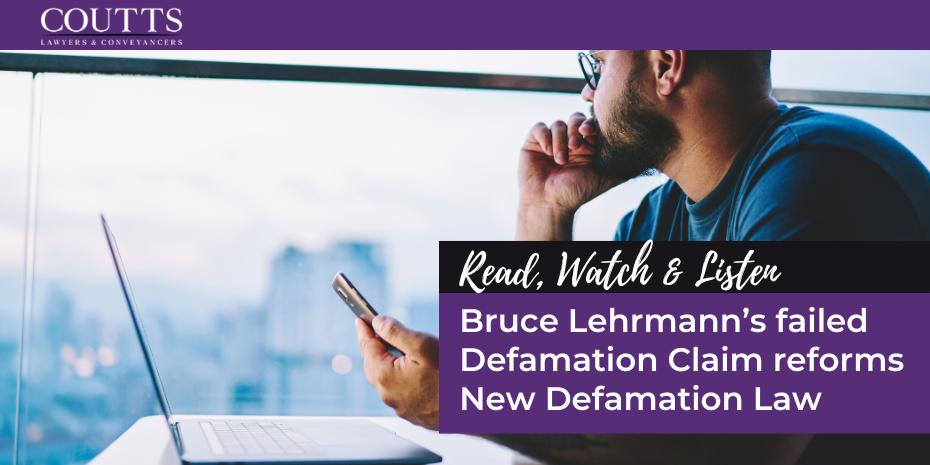KEY TAKE-OUTS:
- The Spring Farm Class Action, launched in May 2021, is now operating under an opt-out system.
- This means that group members are now required to opt out of the proceedings if they do not wish to be involved.
- Residents are currently receiving opt-out notices which must be executed and returned to the Registrar of the Supreme Court by December 23rd.
- This article will assess the consequences of remaining a group member or opting out of the proceedings, and how to do so.
Spring Farm Class Action: Danny Moussa v Camden Council
The Spring Farm Class Action currently being run in the Supreme Court of NSW, titled Danny Moussa v Camden Council, is now a class action in which group members are required to opt-out if they do not wish to participate in the representative action. The class action comes after many new homes began to crack and fall apart due to poor filling and compacting practices. Coutts has previously published a “Q&A” Article, found here.
The Supreme Court has recently ordered that a notice be published that provides information to persons who might be members of the group in which the class action is brought on behalf. A copy of the notice can be found here: important-notice
As such, residents of Spring Farm are currently receiving opt-out notices, whereas previously, residents were required to register their interest to be considered group members.
A ‘group member’ in these proceedings is defined to include any person or entity that owns or owned land located within the areas of:
- “The Cornish Masterplan Area”, where that person acquired the land after 31 December 2010; or
- “The Spring Farm Area”, where that person owned the land as of 1 January 2018 or acquired the land after 1 January 2018; or
- Anyone who are the legal representatives of the estates of any person who would be a group member but for their death and that claim to have suffered damage or loss as a result of the conduct.
What is Opting-Out?
Group members to a class action can cease to be group members, and therefore not bound by any decision made in the court proceedings, by “opting-out”. The process of opting-out requires the completion and return of the opt-out notice that is issued to the group members. The plaintiff in a representative action does not need to seek the consent of group members to commence a representative action on their behalf, and as such, once the proceedings are at a stage where the group members can be easily identified, the choice to “opt-out” is offered.
One of the reasons a person may choose to opt-out of a class action is if they intend to bring an individual action or reach an individual resolution with the defendant, separately from the class action. This may be applicable to individuals who feel they have experienced different or more severe harm than the other group members. While it is generally advantageous to pool claims together and share the economic burden as a group, in some cases it is possible to pursue a larger damage award individually than as a class member. However, there are consequences for both remaining a group member or choosing to opt out of a class action. It is therefore advisable for group members to seek independent legal advice if they are considering opting out of a class action.
Consequences of Opting-In vs Opting-Out
Group members who wish to remain involved in the proceedings will be bound by the outcome of the representative action. This means that if the representative action is successful, they will be entitled to a share in the benefit of any order, judgment or settlement in favour of the plaintiff and group members. This includes a share of any settlement monies or Court-awarded damages. As settlements are generally the most common way in which class actions are resolved, the settlement monies will be distributed amongst the group members who have suffered a loss. The settlement funds are paid into a trust fund and held until the distribution process can occur.
If the action is unsuccessful or is not as successful as expected, the participating group members are bound by that result. Regardless of the outcome of the representative action, group members who have chosen to remain involved will not be able to pursue their claims against the defendant in separate or further legal proceedings.
It is important to note that any participating group member will not become liable for any legal costs simply by remaining as a group member. However, if any compensation becomes payable as a result of any order, judgment or settlement made by the court in the representative action, the court may make an order that part of the compensation is used to pay a share of the costs incurred by the plaintiff in running the representative action.
How to Opt-Out
If you do not wish to be a group member, you must opt-out of the representative action. Should you opt-out, you will not be bound by or entitled to share in the benefit of any order, judgment or settlement in the representative action, but you will be at liberty to bring your own claim against the defendant, provided that you issue Court proceedings within the time limit applicable to the claim.
Anyone wishing to bring their own claim against any of the defendants should seek legal advice about the claim and the applicable time limit before opting out. For anyone wishing to opt-out of the representative action, an “Opt-Out Notice” must be completed and returned to the Registrar of the Supreme Court of NSW.
If you wish to remain a group member, there is nothing further you need to do. However, you are encouraged to contact the plaintiff’s solicitors, Mayweathers, and register as a group member so that further notices about the representative action can be sent to you as the case develops.
Should you wish to opt-out of the proceedings, you must complete and return the opt-out notice to the registrar by 4.00 pm on 23 December 2021. It will otherwise not be effective.
Coutts recommends that any concerned residents that have received the “Opt-Out” notice contact the law firm running the class action, being Mayweathers, to discuss their concerns.
Contact Coutts Lawyers & Conveyancers office today.
This blog is merely general and non-specific information on the subject matter and is not and should not be considered or relied on as legal advice. Coutts is not responsible for any cost, expense, loss or liability whatsoever in relation to this blog, including all or any reliance on this blog or use or application of this blog by you.



